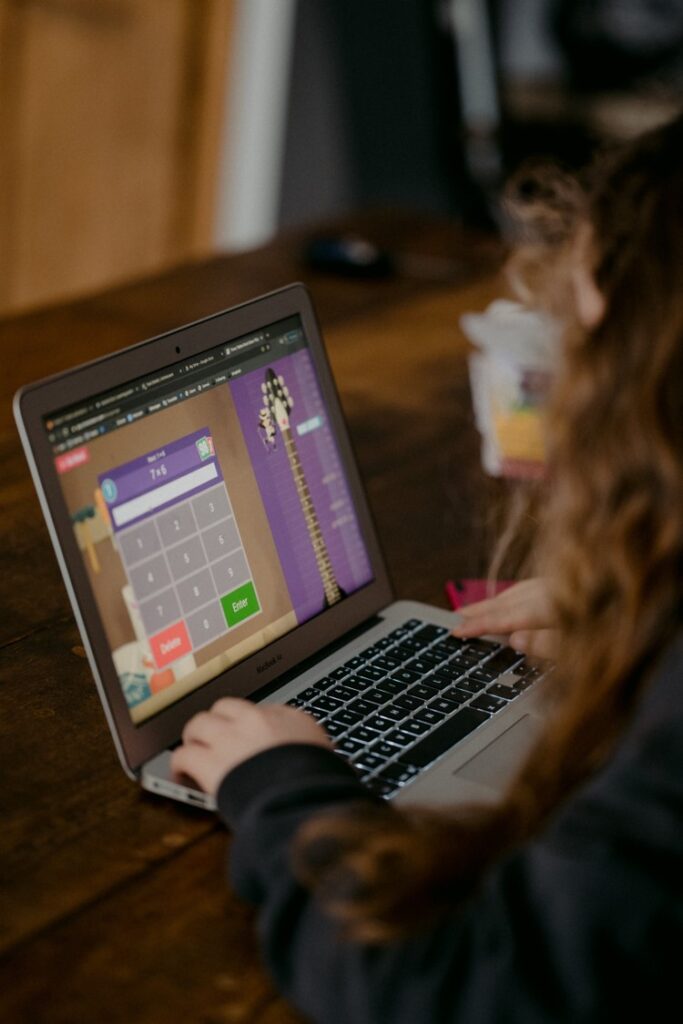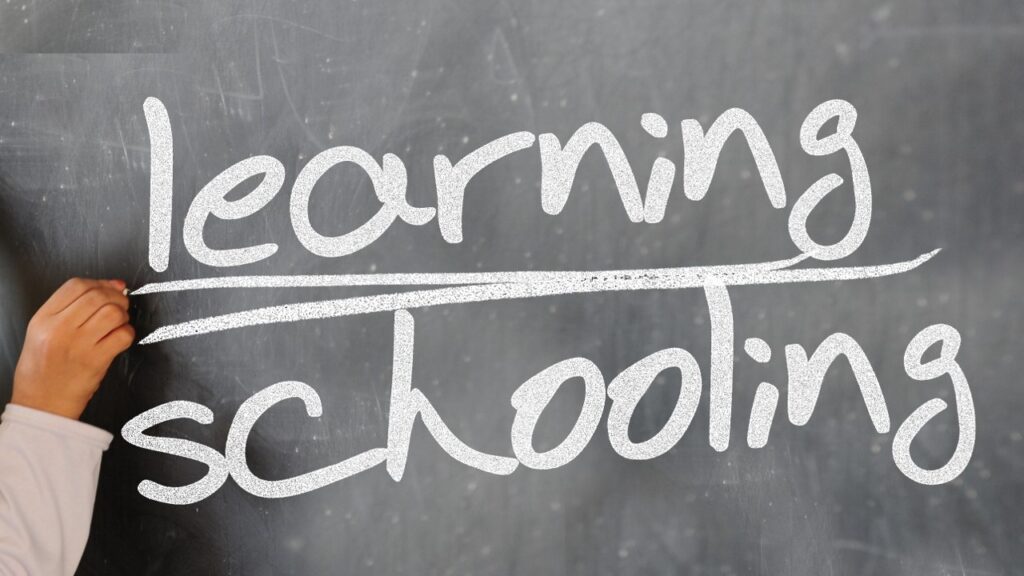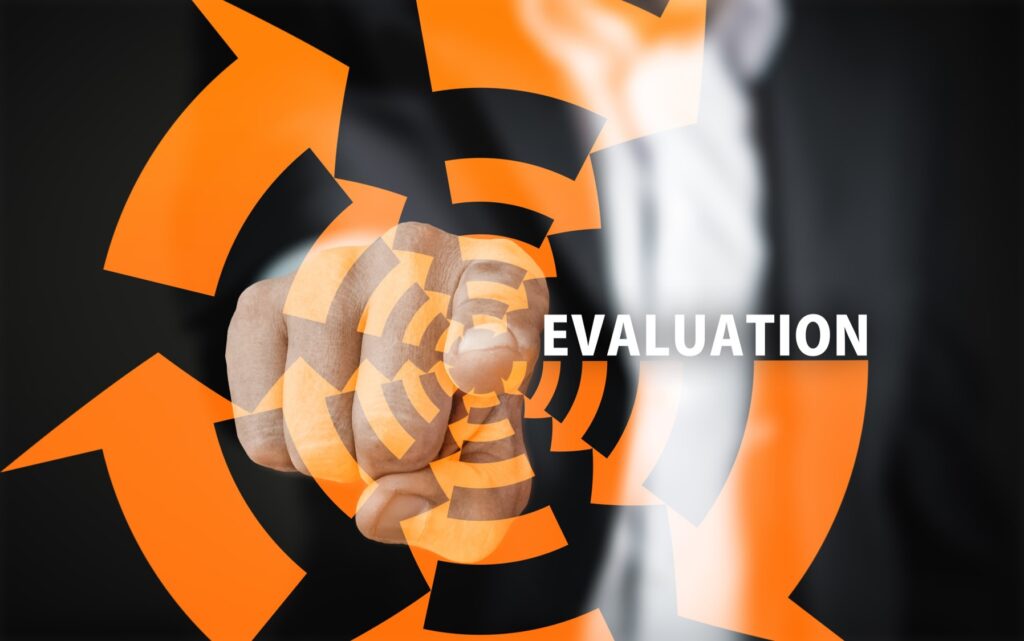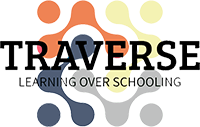- Think – critically with an Agile mindset when managing projects and achieving goals
- Realize – words matter and communicating effectively involves a focus on listening as much as if not more than talking.
- Advance – with a growth mindset to manage failure and keep it in its proper context.
- Visualize – creative and innovative ways to solve problems.
- Engage – instilling a sense of community through collaboration.
- Recognize – the importance of discovering one’s own unique talents and passion and leveraging them to make the world a better place regardless of what others may think or say.
- Soar – above what “others” are doing and make sound decisions to make a better life for yourself and others.
- Emulate – the principles and actions of Jesus Christ in a practical way.

Overview
We don’t think learning should be one-size-fits-all. We’ve designed a system to help kids along their individual and collaborative learning journeys. Each learner works on the necessary academic content on their own and with other peers and mentors. We believe that academic content does not determine a successful journey and while it is a necessity it should not be the only priority. TRAVERSE separates the curriculum across three areas: Academics 25%, Competency 25%, and Character 50%. We support learners in discovering their passions, developing excellent habits and time management skills, and engaging in countless opportunities to share their learning with others and get feedback on their work.

Philosophy
The TRAVERSE curriculum is dynamic and diversified, offering humanities, mathematics, science, entrepreneurship, and the arts. Mastery of the traditional academic disciplines is interwoven with artistic and practical activities to provide a dynamic and engaging educational experience for every student.
Central to TRAVERSE is a recognition of and respect for the child’s unfolding God-given individuality. The curriculum is designed to meet the student’s specific developmental needs. In a world in which education is focused on normative, quantifiable outcomes, the uniqueness of the individual learner’s gifts and challenges often must take a backseat to the pressure of general societal expectations. Our education values difference and strives to support developing learners in such a way that they can bring their gifts to fruition while, at the same time, learn to cope with their challenges.
We remind students that in today’s society you don’t have to wait to start a business. There are multiple paths forward and true success is using your God-given talents in accomplishing His will. They should leave school with a strong sense of purpose based on a clear understanding of both themselves and the world.
TRAVERSE focuses on challenging learners in such a way that the emergent ability of independent thinking can lead to a true experience of meaning. Our approach includes:
- Project-Based Learning is an alternative instructional approach that is characterized by hands-on learning that engages students and parents with opportunities to connect their learning with the world around them in order to make a difference.
- Problem-based learning is a student-centered pedagogy in which students learn about a subject through the experience of solving an open-ended problem found in trigger material.
- Interdisciplinary/cross-curricular is a conscious effort to apply knowledge, principles, and/or values to more than one academic discipline simultaneously.
- Agile/Active is recognizing we don’t get things perfect the first time. Learning—and mastery—is an iterative process. It is a continuous feedback loop—learn/try/fail—is the fastest way to acquire knowledge and improve.

The TRAVERSE learning experience is:
- Holistic. We value content, competency, and character. We believe all three are important. We know that students need all three to not simply survive but thrive in life personally, professionally, and spiritually.
- Purposeful. Gone are the days of “Why do we need to know this?” or “Is this going to be on the test?” We believe now is the time to present students with real scenarios concerning God, social justice, finance, commerce, and then listen to their voice in response.
- Flexible. Every family has different priorities, expectations, and abilities when it comes to education. Does your child want to go way beyond grade level in a few disciplines and stick to the basics in others? Does your child have an extracurricular commitment that has been challenging to work around a traditional school schedule? We’ve designed TRAVERSE to support you.
- Trusting. Much of the traditional school experience is designed to control kids: “bells” to tell them when to move, “busy work” to keep them occupied, threats of bad grades for misbehavior, and textbooks to tell them what to think. With TRAVERSE, we trust learners to have a real interest in bettering themselves, and with guidance and mentoring can make proper decisions around time and effort.
- Structured. We do not believe success comes without failure and that experience is the ultimate teacher. TRAVERSE utilizes what we call “productive struggle”. Students enjoy rigor through a challenge if it’s the right kind of challenge: difficult enough to push them while still within the range of their abilities and tied to something that matters. Have you ever seen your child get so engrossed in an activity that it was hard to tear them away? That’s our goal for learning with TRAVERSE.

Skills we cultivate
Every aspect of the TRAVERSE journey is designed to create students who are well-rounded, confident, capable individuals ready to tackle college, vocation, entrepreneurship, and beyond. What does that look like? Well, it looks different for each student but every student will be guided through each of the three learning journeys. The knowledge Journey, The Competency Journe, and the Character Journey.
Knowledge Journey
KEY ACADEMIC CONTENT
Although TRAVERSE approaches curriculum much differently than a traditional school, we, like traditional schools, highly prioritize next-level readiness. Our curriculum asks learners to constantly practice the overarching skills they will need to succeed in any school, whether public, private, or if a job or start-up business is their next stop: research skills, writing skills, and verbal communication skills will be needed. We believe that kids should be constantly practicing these skills across all subject areas, rather than only practicing writing in English class or only practicing research in Science class. Of course, each academic discipline also has its own important skills covered by the Knowledge Journey. See a summary of all of these skills below:
| CATAGORIES | SKILLS |
| Research | How to develop a compelling research question. How to use libraries and search engines to find accurate information. How to take into account the context, bias, and validity of each source. How to use research to draw conclusions and create informed arguments. How to properly cite sources and give credit to original authors and researchers. |
| Writing | How to construct a well-researched, well-structured, and well-reasoned written argument. How to support and contextualize a written argument using sources and evidence. How to flexibly adjust tone, style, and structure in writing to match an audience or a format. How to write comfortably in many different formats, including those not typically focused on in school. How to correctly use academic or domain-specific language, terminology, and phrases. How to write with appropriate grammar and conventions. |
| Verbal Communications | How to research and prepare for a variety of formal and informal presentations. How to speak with a tone that matches one’s message and purpose. How to speak with intention, using appropriate language for the situation. How to deliver a message in the amount of time appropriate to the format. How to stay on topic and be concise. How to engage in open, peaceful dialogue, and use conversation to resolve conflicts when collaborating with others. |
Discipline-specific academic skills
These skills are woven into every Knowledge Journey in each discipline. For more about Knowledge Journeys, see below
| DISCIPLINE | SKILLS |
| English | How to read at or above grade level for research and for pleasure. How to read from a variety of genres, styles, and time periods. How to write compellingly for a variety of audiences and contexts. |
| Math | How to perform basic operations at or above grade level. How to estimate and make predictions based on a deep conceptual understanding. How to apply mathematical concepts to real-world projects and scenarios in daily life. |
| Science | How to read and analyze research to see where scientific understanding can be pushed further, ask interesting questions, and propose creative solutions to scientific problems. How to create thoughtful and well-designed experiments to test hypotheses and answer scientific questions. How to understand and explain biological, physiological, and chemical systems while using scientific vocabulary accurately. |
| Tech and Design | How to think like a programmer and/or designer by using prototyping, testing, iteration, and feedback to refine ideas. How to not just consume technology, but use it as a tool of creation, by making real products, experiences, and projects to express themselves and solve problems. How to be an informed, critical consumer who uses their understanding of technology to make smart, healthy decisions. How to code |
| Social Studies | How to place learning in geographical, geopolitical, and historical context and define key terms and concepts surrounding the area of study. How to consider and evaluate the reliability of information from a variety of primary, secondary and tertiary sources, as well as from a variety of mediums including art and fiction. How to not just read about social studies, but participate in it, by making connections across time periods and geographies, thinking critically and forming opinions, and applying learning to create projects, products, and artifacts that reflect their understanding of the past, present, and future |
| Arts and Culture | How to develop a critical eye and personal taste through exposure to art in many forms, styles, and situations. How to investigate the meaning of a piece of art by understanding artist intent, including historical and cultural context. How to express themselves, a feeling, or a theme in a variety of ways and through various mediums. |
| Bible | How to develop and cultivate faith. How to give a bible study and learn how to let the bible interpret the bible How witness Jesus not religion and share the practicality of His life through the gospels |
Competency Journey
KEY COMPETENCIES
It is great to be able to memorize content and put it into a requested form appropriately. Our students quickly learn the importance of what you are able to do with what you know. How does math help you in the world. TRAVERSE is designed to prepare students for jobs that haven’t even been thought of yet. This is why we put most of our emphasis on competencies or skills that can be utilized no matter what comes next.
Here’s just a sampling:
- Learn How to Learn. Take this seriously. School has given learning a bad name. School is about getting graded on how well you follow instructions. Learning how to learn is about life.
- Communicate Effectively. Your thoughts are important. Be a great writer, public speaker, and be able to cultivate a following on a variety of platforms.
- Collaborate. When you are on a team do your part. Know how to lead and how to follow.
- Solve Problems Creatively. Stop asking adults for the answer. Think about what are the different ways you can solve the problem. Don’t do it for the grade do it so you solve the problem.
- Manage Failure. Try something and if it works, great. If it doesn’t, great try something else. Keep trying until you get it. There is no real learning without trial and error. Take thoughtful risks.
- Be the Change. Have an opinion and a plan for things that are bigger than you.
- Sound Decision Maker. It is easy to decide between good and bad but it is your values that allow you to decide between good and good. It is your faith that allows you to decide between what you want and what God wants for you.
- Project Manager. Success comes through process. You must understand how to manage projects and set goals.
- Persevere. Have grit. Put the work in.
- Leverage Your Passion. Identify what your talents and passions are and use them to impact the world.
Externships and Professional Learning Experience
All roads do not lead to becoming a doctor, lawyer of working in silicon valley. Whether students choose a career from our professional certifications or not is not the point. Equipping them with a verifiable skill puts them way ahead on their journey forward.
A sample of the following opportunities:
- Medical Practice
- Performing Arts
- Architecture
- Technology and IT
- Physical Science
Character Journey
KEY DIMENSIONS
Students develop character on their character journey by developing plans to address the eight dimensions of wellness. They do this by utilizing skills obtained in their Competency Journey. For example, Students will create SMART goals for outcomes in each of the eight wellness dimensions.
| DIMENSION | S.M.A.R.T. GOAL |
| Physical | A healthy body. Good physical health habits. Nutrition, exercise, and appropriate health care. These make up the physical dimension of wellness. Students learn that the body is intelligent, and learning to listen to it more deeply may be very important and empowering. |
| Intellectual | Intellectual Wellness involves many things that keep our brains active and our intellect expanding. In a broad sense, this dimension can involve looking at different perspectives of an issue and taking them into consideration. Students can broaden their perspective and understand diverse points of view |
| Financial | There are many definitions of what constitutes being financially well, but overall, being financially secure is about living within one’s means. Students are introduced and learn about things such as income, debt, and savings. |
| Environmental | This involves being able to be safe and feel safe. This can include: • Accessing clean air, food, and water; • Preserving the areas where we live, learn, and work; • Occupying pleasant, stimulating environments that support our well-being; and • Promoting learning, contemplation, and relaxation in natural places and spaces. |
| Spiritual | Spiritual growth is a broad concept that represents one’s personal beliefs and values and involves having meaning, purpose, and a sense of balance and peace. It includes: Understanding our role in the great controversy between God and Satan Cultivating faith Emulating the life of Christ in a practical way. |
| Social | The Social Wellness Dimension involves having healthy relationships with friends, family, and the community, and having an interest in and concern for the needs of others and humankind. Students learn about digital citizenship and the importance of digital community |
| Occupational | The Occupational Wellness Dimension involves participating in activities that provide meaning and purpose and reflect personal values, interests, and beliefs, including employment. Students will learn about entrepreneurship and the importance being becoming highly emotionally intelligent. |
| Emotional | The ability to express feelings, adjust to emotional challenges, cope with life’s stressors, and enjoy life. It includes knowing our strengths as well as what we want to get better at, and living and working on our own but letting others help us from time to time. |

Assessment with TRAVERSE
With TRAVERSE we use assessment to:
Understand what and how kids are learning
Share feedback about this learning with the learners and their families
Support mentors and learning expedition designers in improving and refining our curriculum and instruction methods
At some schools, assessment serves other purposes as well. However, with TRAVERSE, the purpose of assessment is NOT to:
- Motivate learners. Decades of research has shown that although the promise of grades, numeric scores, stickers, and prizes can motivate students, this motivation is a weak, extrinsic motivation that diminishes their interest, encourages them to “do the minimum,” and kills their curiosity since they soon start to focus on what they “need to know” rather than what they “want to know.”
- Punish learners. If a learner is struggling with the material, we connect them with help and support. If a learner isn’t trying their best, we have a conversation and make an action plan.
- Compare students to one another. Each learner is unique and has different strengths and weaknesses. They should primarily be compared to themselves: How far have they come since the beginning of the year? Have they reached their goals?
STANDARDS
We use Standard-based grades with TRAVERSE. Spoiler alert, everyone passes. Some might hear this and think that means that the traverse program is easy or that we “go soft” on learners or that their child’s amazing work won’t be celebrated. Nothing could be further from the truth. In reality, grades and rubrics are often easy—they allow students to slide by. If a student asks the right questions and has the right study partner it’s pretty easy to get a good grade. Traditional schools tell kids exactly what they need to do to succeed. TRAVERSE equips learners to be well-prepared for the real world because they don’t expect to always be given a checklist and are used to persevering to make something they’re proud of, rather than stopping when they’ve “met the requirements.” And TRAVERSE assessment is anything but “soft.” Our mentors push learners to deliver their best effort by providing critical, constructive, and personalized feedback on their work. Learners learn to accept and invite critique, not only from adults but also from their peers, a key skill for future success.
TRAVERSE goes above and beyond to celebrate learning by providing countless opportunities for learners to share their work with the world. Beyond frequent synchronous meetings where work is shared, learners also show off their work at passion presentation parties, Mastery showcase, and digital community days, have work featured on the TRAVERSE website and graduate with a stellar portfolio of hands-on learning that will open doors to even more possibilities.
So, although you can’t expect to see a typical report card, it will be standards-based. At the end of every cycle, you will be able to track your child’s progress by reviewing things like:
- Their learning journal. Every learner keeps an online journal where they record their daily goals and activities, write reflections, post photos and videos of their project progress, and receive comments and suggestions from their peers and coach.
- Their holistic feedback. At the end of each cycle, mentors write and share a narrative summary of your child’s journey, growth, and struggles over the ten weeks. This feedback is reviewed during a video conference with the mentor, you and your learner.
- Their TRAVERSE E-portfolio. Learners will carefully compile a beautiful record of their learning and reflection into a cumulative digital portfolio.
